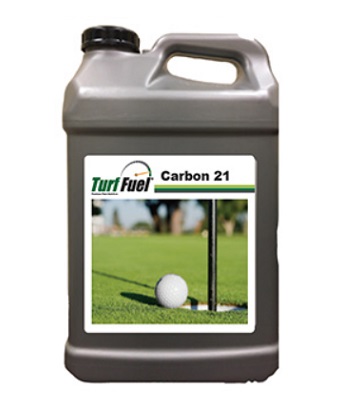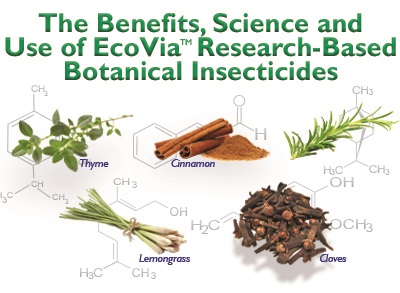Sugar, We're Goin' Down

Most people would agree that one of the core functions within plants is photosynthesis, which is necessary for the plant to generate its own energy through sugar production. The ingredients carbon dioxide and water are prepared in the chloroplasts fueled by energy from the sun with the result being sugars and oxygen. The correct balance of nitrogen, magnesium, and micronutrients are required for chlorophyll formation.
The system works well in a natural environment where leaf surface area, rainfall, nutrient supply and air flow are all abundant. In a turf or ornamental system, we limit the ability of our plants to fulfill these basic requirements. Shade is problematic in many turf and landscape settings. Nutrients are often limiting due to the use of sand based root zones or poor quality soil used in construction. Water is either unavailable, or not useable because of high salts.
Most plant processes; growth, rooting, vegetative reproduction, flowering and stress tolerance require energy from sugars derived from photosynthesis. Arguably almost all plant decline can be attributed to reduced photosynthesis or lack of sugars in the plant. It reasons to think that plant performance can be improved with the application of supplemental sugars.
A few years ago, the Turf Fuel innovation team began a project to research and better understand whether sugars can be applied to turf and landscape plants to increase performance. It was found that there is strong supporting research for this approach. There are a multitude of sugars which all have various functions and value to turf.
Shade Tolerance
Dr. John Sorochan conducted research at Michigan State University established that supplementing low carbohydrate reserves by exogenous carbohydrate applications is one way to compensate for the effects of low light conditions. (Sorochan 2002).
Priming of Plant Defense Responses
Over the last decade, the concept of plant defense and stress tolerance has become widely recognized as a key aspect of plant function. The processes involved in plant defense require a huge amount of plant energy. Further to that, pretreatment of plants with specific sugars enhances resistance to infection. (Gómez-Ariza 2007). The applications of sugars to various plant species have shown increased tolerance to biotic and abiotic stresses.
Growth
The good news is that applications of specific sugar supplements do not result in additional yield. (Davis et al 2011) If growth is desired, nitrogen can be applied, however in many situations, higher plant energy is desired without associated growth. Applications of sugar can supply this much needed energy without the associated extra growth.
Energy for Later Use
Cool and warm season plants use sugars for everyday tasks, and also store sugars in specific forms for use during stressful times. Namely for use during the heat of the summer or to assist in breaking dormancy after a long winter. Often nitrogen is applied as a strategy to build carbohydrates prior to these stress times. Supplemental sugar applications to corn roots mixed readily with sugar already in the plant (Grant and Beevers, 1963), indicating that sugar will accumulate and translocate throughout the plant.
Considerations
Leaf injury has been experienced when the wrong sugars are applied without the correct adjuvant. When selecting a sugar source, choose a product formulated for safe application to sensitive leaf tissue.
Turf Fuel Product Suggestions
Turf Fuel recognizes the value of using the right sugars to enhance plant performance. The first generation products Element 6 and Carbon 21 contained the appropriate amounts of simple, common sugar sources. VERTICAL is the next generation sugar based product that uses proprietary sugar complexes derived from natural and synthetic sources, found to be the safest and most beneficial to plant performance.

ELement 6
Improves grass and lawn quality, and works as a carbon rich fertilizer and plant biostimulant.
References:
John Charles Sorocan, Sugar in shade: The effects of exogenous fructose applications to turfgrass under reduced light conditions
Jorge Gómez-Ariza, Sonia Campo, Mar Rufat, Montserrat Estopà, Joaquima Messeguer, Blanca San Segundo, and María Coca Sucrose-Mediated Priming of Plant Defense Responses and Broad-Spectrum Disease Resistance by Overexpression of the Maize Pathogenesis-Related PRms Protein in Rice Plants
Furseth, B., Davis, V. M., Casteel, S. N., Naeve, S. L., and Conley, S. P. 2011. Soybean seed yield was not influenced by foliar applications of sugar. Online. Crop Management doi:10.1094/CM‐2011‐0615‐01‐BR.
Grant, BR. and H. Beevers. 1963. Absorption of sugars by plant tissues. Plant Physiol. 38: 78-85.

Mark Jull - Target Specialty Products Proprietary Products Manager
Mark Jull is an experienced agronomist, business leader, and turf manager. Driven by curiosity and passion for helping peers, he takes pride in providing new and innovative nutritional solutions. As the Proprietary Products Manager, his goals include creating a product portfolio that empowers turf managers to take control of their plant health by creating more sustainable turfgrass systems. Mr. Jull oversees Turf Fuel, Strike Max and TS Pro brands at Target Specialty Products. In addition to his career aspirations, Mr. Jull enjoys mountain biking, skiing, and hockey with his wife and two boys in Calgary Canada.












